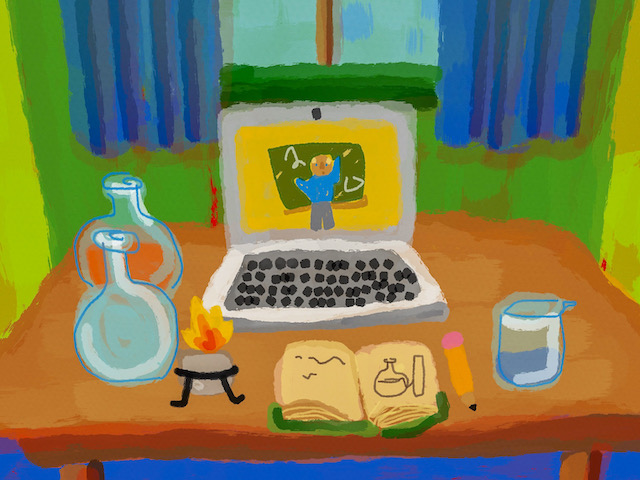Any UT applicant can tell you confidently that UT is known for its research. Ranking No. 10 out of all U.S. universities for scientific research, UT’s standing as a public research institution not only benefits the academic community but also students that call it home.
Much of the University’s scientific research is conducted through high-performing labs. Immersion in a lab, especially for STEM undergraduates, allows students to network, further their skills and expose themselves to what they want to do for the rest of their life.
As a natural sciences student, I’ve been told getting into research requires initiative on my part. As long as I knock on doors, attend office hours and put myself out there, getting a position in a lab comes easy.
Since the start of the COVID-19 pandemic, however, many labs have been forced to limit capacity within the workspace, leaving undergrads without a source of experience or career-building as isolation continues.
In light of this new challenge, professors need to offer virtual lab opportunities for undergraduate students in STEM to supplement the missed opportunities of fieldwork and research throughout the pandemic.
To its credit, UT has taken steps to make up for the lack of in-person research this semester. Through the Texas Institute for Discovery Education in Sciences, undergrads can participate in several activities online, such as day-long teamwork events, group entrepreneurship proposal simulations and streamed academic speakers.
These are all fantastic opportunities to practice the scientific method and work with peers, but they lack the lab-based calculating and career-relevant focus that attracts so many students to research in the first place.
Collaborating on predetermined topics with people my age is great, but if I can’t witness the day-to-day work of professionals on the subject of my choice, I’m in the same boat I was in prior to the activity in terms of validating my career interests.
Mackenzie Howard, a neuroscience research assistant professor, attributed the benefits of STEM research to two main categories: career exposure and understanding science conceptually.
“People can love science but may not love the day-to-day aspect of doing science,” Howard said. “There are plenty of jobs out there for people who talk about science or write about science, but to be a lab scientist, you’ve got to enjoy working with your hands.”
Howard explained that a student’s understanding of a concept is significantly furthered when they can experience it hands on, rather than just hearing it taught.
“Your ability to really absorb the concepts underlying the science we do is so much greater when you have that lab component,” Howard said.
Howard’s lab is not currently allowing undergraduates to attend in-person research. When I asked about the possibility of incorporating virtual opportunities, such as allowing students to sit in on weekly lab recap meetings or setting up a lab livestream, Howard said that he worries the effort will be lost on students not willing to take advantage of resources offered.
However, it’s clear that there are already students who are interested. Pre-med psychology junior Taylor Knight said she would absolutely take advantage of virtual lab opportunities.
“If students don’t have firsthand experience and they don’t see what it’s like, they could be potentially wasting a significant part of their education,” Knight said.
UT’s research may be based in inquiry, but this answer seems clear: When given the (virtual) opportunity, students will come.
Research opportunities should not be limited to predesignated topics or graduate students. Professors owe it to undergrads to provide virtual alternatives to lab-based research.
Costello is a neuroscience freshman from Boerne, Texas.





















